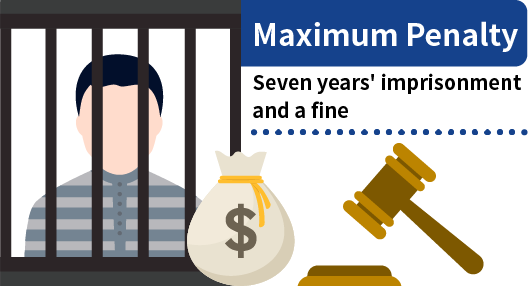Misconduct in Public Office
Public servants are entrusted with the powers to serve the public interest. In view of the important role and responsibility of public servants, the public is highly concerned about them being involved in conflict of interest. In recent years, during investigation into corruption allegations, the ICAC has also unearthed a number of cases where employees or members of public bodies misconducted themselves with serious conflict of interest and were prosecuted for the common law offence of misconduct in public office (MIPO).
MIPO is a common law offence which targets all forms of serious misconduct by public officials. The definition and scope of MIPO is evolving to meet the social development and public expectations for the integrity of public officials.
Key Elements
The Court of Final Appeal has in previous court cases spelt out the key elements of the offence of MIPO. It was held that the offence would be committed where -
- a public official;
- in the course of or in relation to his public office;
- wilfully misconducts himself; by act or omission (for example, by wilfully neglecting or failing to perform his duty);
- without reasonable excuse or justification; and
- where such misconduct is serious, not trivial, having regard to the responsibilities of the office and the office-holder, the importance of the public objects which they serve and the nature and extent of the departure from those responsibilities.
Points to note
The misconduct must be deliberate rather than accidental in the sense that the official either knows that his conduct is unlawful or wilfully disregards the risk that his conduct is unlawful. Wilful misconduct without reasonable excuse or justification is culpable.
A public official, even if his misconduct does not involve any bribery, may commit the offence of MIPO if he:
A public official, even if his misconduct does not involve any bribery, may commit the offence of MIPO if he:

misuses his official position for pecuniary gains (whether for himself or others)

uses his discretionary power improperly

shows favour to a particular contractor for personal interest

wilfully neglects to perform his duties
Penalty
A public official convicted of MIPO is punishable under section 101I(1) of the Criminal Procedure Ordinance (Chapter 221 of the Laws of Hong Kong), and is liable to a maximum penalty of seven years' imprisonment and a fine.
